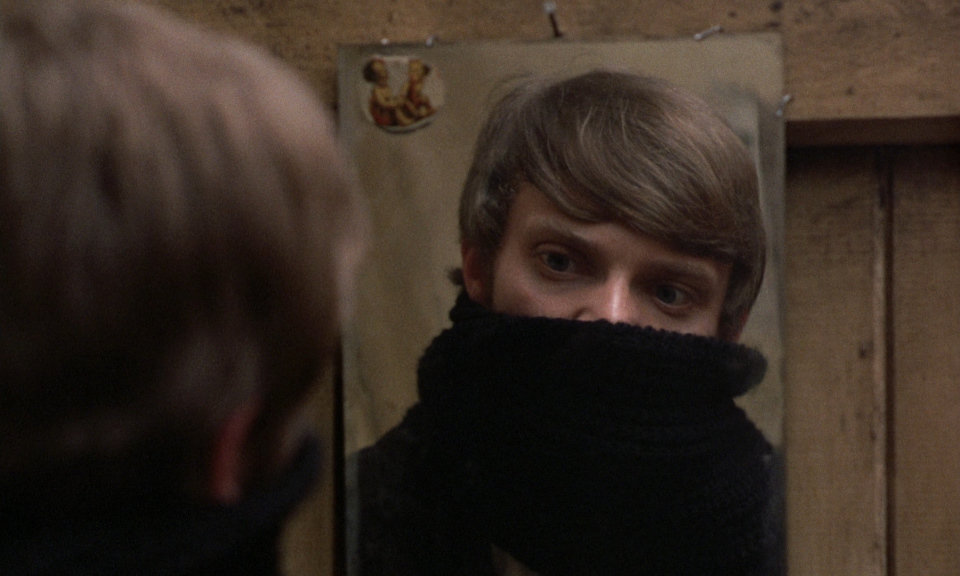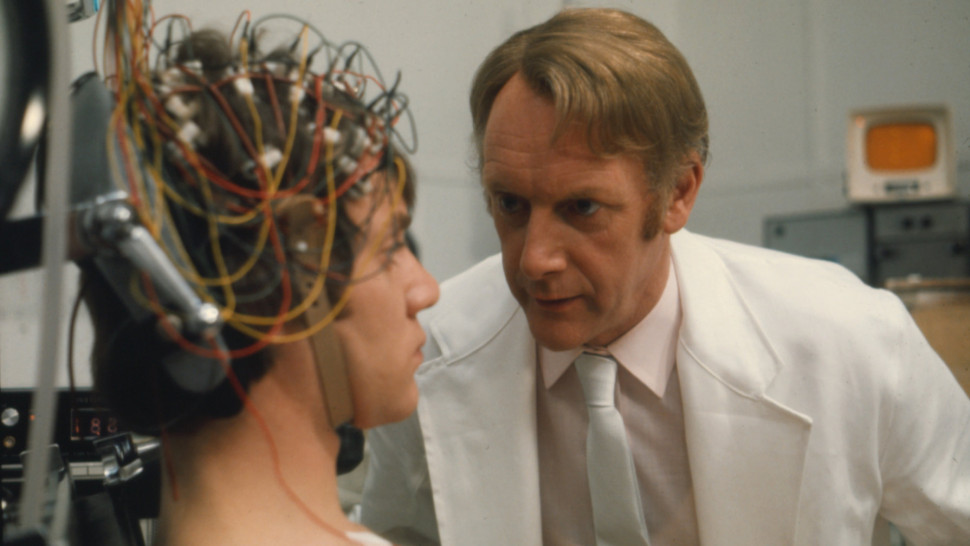If... (1968, Lindsay Anderson)
Quest Status #693 / 1000

TSPDT Rank #370
If... is an uneven film, with a loose episodic structure that builds towards its almost apocalyptic conclusion with very little regard for narrative logic or character development. However, it makes up for this with a true rebel's spirit. If... has a lot in common with the "angry young man" films made in Britain during the early 1960s, but it feels more dangerous than those films. As the central character among a rag-tag ensemble of junior and senior schoolboys, the sadistic "whips" at the top of the heap, and an assortment of professors and would-be authority figures in the film's generically-named "College", Malcolm McDowell's Mick Travis is the main source of this feeling of danger. In fact, the edge which McDowell displays in If... isn't far removed from the amoral source of terror that he portrayed a few years later in Stanley Kubrick's A Clockwork Orange.

But whereas A Clockwork Orange is about a young man for whom "ultraviolence" is a source of pleasure, Travis is a young man who just sees violence as the only means of response to an oppressive society. In this sense, If... is more of a political film, as opposed to A Clockwork Orange, which examines morality and free will. Those topics are less of a concern here. Instead, If... is a dreamlike vision of how the revolutionary awakening of young people could lead them to turn against the oppressive societal institutions meant to train them for the cruel hierarchy of adult life. There's a touch of absurdity here, but more than a little reality. Especially viewed today, in the wake of Columbine, Virginia Tech, and so many other school shootings, the apocalyptic final sequence of If... has a chilling resonance, despite its surrealist flair. Lindsay Anderson was more ahead of his time than he ever could have known.
O Lucky Man! (1973, Lindsay Anderson)
Quest Status #694 / 1000

TSPDT Rank #943
It's safe to say that O Lucky Man! is much less well-known than its predecessor, If..., but I'm tempted to call it the better film. Here, we again have a character named Mick Travis, played by Malcolm McDowell, and many of the same actors from If... appear here in (multiple) different roles, but otherwise the two films couldn't be more different. It's debatable whether this Mick Travis is even the same character as the one seen in If.., despite the obvious similarities. But as Mick effectively laid waste to the oppressive world of his childhood in If..., it only takes a slight stretch of the imagination to see O Lucky Man! as Mick's fever dream of what the straight world might be like, as imagined in the aftermath of his own anarchic revolt against society. After all, the Mick Travis we see here is nothing like his angry schoolboy counterpart. He's a vision of conformity, repeatedly tormented by circumstance but hellbent on his own materialistic vision of success.

Starting out as an apparent critique of modern industry and big business, in the vein of Modern Times, O Lucky Man! ends up shifting gears so many times that it becomes almost impossible to classify. Where If... was episodic and non-linear, O Lucky Man! seems to flow effortlessly in a straight line. Despite its numerous inexplicable plot digressions, it moves with a schizophrenic dream logic that is bewildering as it is easy to follow - strange as that might seem. Holding all of this madness together are the songs of Alan Price (of The Animals) and his band playing in a nondescript studio rehearsal. They have a passing connection to the plot, but their main purpose is to punctuate the action and hold everything together. It's a stroke of genius that works so well, I couldn't believe that I hadn't seen something like this before.

What Lindsay Anderson was actually trying to say with O Lucky Man! is ultimately difficult to parse out. Is this a critique of modern society, idealism, and those who try to follow the straight and narrow despite the madness that surrounds us all? Or an absurdist statement that the straight and narrow isn't all that it's cracked up to be? Or maybe there's no statement at all. Regardless of what you make of it, O Lucky Man! is an exhilarating journey of a film that deserves to be more well known. However, as its low ranking on the list suggests that it might not be on the 1,000 Greatest Films for much longer, I'm glad that I got a chance to review it here for posterity.

No comments:
Post a Comment